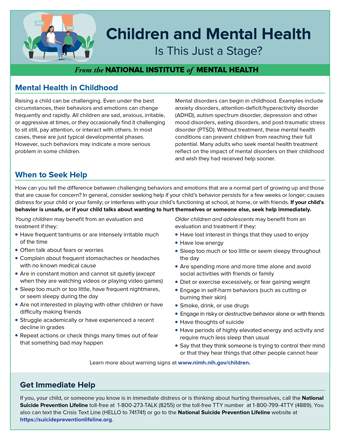
Domestic violence refers to the physical and sexual abuse of a spouse. It can also include threats and coercion. In addition, abuse can include imprisonment and false accusations. Listed below are examples of abuse. If you've experienced any of these behavior, it is time for you to seek treatment.
Abuse of the body
The most severe form of domestic violence, physical abuse, is the most common and devastating. It may involve hitting and shoving or pinching, biting, pulling hair, or a combination of these actions. You can even force the victim to drink alcohol or take drugs. Other forms of physical abuse include stalking and sexual coercion.
While physical abuse is the most common form of domestic violence, many victims do not realize that it can also include non-physical methods. Non-physical abuse could include withdrawal of affection, threats of violence and social isolation. These actions can lead to a dysfunctional family environment that negatively impacts the victim's health.
Threats
Threats to domestic abuse can take many forms. Oftentimes, these crimes are made with the intent of harming someone or destroying their property. Others threats can also be very serious. These could include the threat or harm to pets, as well as suicide threats. Threats to perform sexual acts is another form of domestic violence. This can include making someone view pornographic material, have sex, or treating them in a way that is degrading based upon their sexuality.

A threat to use a weapon to harm the victim is particularly dangerous, as it increases the risk of lethal violence. This tactic is used by many abusers to control their victims. This warning sign should be taken seriously as it can increase the chance of lethal violence.
Coercion
It is difficult to define coercion in domestic abuse. Its definition is not clearly defined, but feminist scholars have argued that batterers often use pressure to control their victims. This issue has been addressed using a range of methods, including emotional and psychological insults, isolation, and threats.
The extent and type of coercion are two important concepts in coercion. Some types are more serious than others, including physical assault, taking the victim's children, or withdrawing their immigration application. Some forms are more serious than others, including humiliating the victim and seeking out sex outside of a relationship.
Intimidation
Although it is difficult to identify domestic violence, there may be signs that indicate an issue. These signs include threats, intimidation, coercion, and financial control. These abuses can cause psychological damage that lasts a lifetime. It is important to seek legal assistance immediately if you suspect someone you care about is engaging with such behavior. This evidence can be used by the prosecutor to bring the offender to justice, protect the victim and ensure their safety.
Intimidation in domestic violence is a crime and can result in serious consequences. Luckily, this crime is punishable under the Crimes (Domestic and Personal Violence Act 2007). Abusing animals in domestic relationships is also illegal. Domestic violence cases can involve violence against children and pets. However, federal law does not recognize the importance of pets in such situations.
Cyberstalking

Many people may not be aware of the link between cyberstalking and domestic violence. However, there is help available for victims. In fact, there is a bill currently being considered in the state of North Carolina that would strengthen state laws against domestic violence and cyberstalking. Advocates argue that people need to be more aware of these issues and seek out help.
The first step is to make a report to the local law enforcement agency. Keep a copy of any police reports and correspondence you receive if you suspect you have been stalked. You might also want change your email address, Internet Service Provider, and Home Phone Number to avoid unwanted contact. You may also need privacy-protection software installed on your system. Some email programs also have the ability to block certain email addresses.
Intimate partner violence
Intimate partner aggression is when one of the partners repeatedly threatens or hurts another. It most often occurs at home. The abuser can restrict the victim's freedom of movement and control her finances. She might be prevented from leaving the house or deprived of phone calls. She may feel isolated from friends and family who could help her escape abusive situations. She may also be subjected to threats that limit her choices or force her to perform acts against her/his will.
The definition of domestic violence is very broad and includes many different forms of abuse. Sexual assault and physical abuse are the two most common forms. It could also include threats of coercion or coercion to have or have sex. Threats can come in the form words, gestures, and weapons. Other forms of abuse include choking on, burning, or using a knife.
FAQ
I don't trust my boyfriend anymore because he cheated. What should I do next?
Trust is an important part of any relationship. Two people cannot truly connect if they don't trust each other.
Falling in love can lead to you being betrayed. You trust that the other person will treat you well and give your heart. You hope they will never let anything happen.
Sometimes things can go wrong. You may be cheating on your boyfriend. Perhaps he quits his job. Maybe he hurts himself.
In either situation, you will likely feel betrayed.
It is possible to feel confused. Why did this happen? Is he capable of betraying me like this? Why didn't I find out sooner?
These are all valid questions. Instead of asking these questions, you should ask yourself what you will do next.
What does it really mean to forgive him Is there any way to forgive him? Is it possible?
The answers to these questions will determine your next steps.
You can forgive him and move ahead. You can attempt to repair the damage caused by his actions.
If you choose not to forgive him, it is likely that your relationship will end. He has broken your trust. There's no point in trying to rebuild it.
Either way, you need to take some time to think through your options.
How to tell if someone is serious about having a relationship or not?
If she answers yes, you will also answer yes. If she says no you can also say no. If she answers no, you ask her again. If she responds no, you will walk away.
That's the way it works. This is how life works.
But it's not just that. There is so much more. Not only will you discover if someone's serious or not, but you'll also learn lots about yourself.
You'll learn if you're ready for love or not. You will find out if you are worthy of love. You won't find out if it's time for you to get married. This will let you know if your are ready to settle down.
These are important things to learn early in life. It will make it easier for you later. So here's how to tell if someone is seriously interested in having a relationship with you.
Look at their body language. Are they close to you or not? Do they seem interested in you? What do their eyes do when they see you? Do they smile at you? Do they laugh? Do they smile or nod their heads? Do they lean in front of you? Do they reach out to you?
Second, be attentive to what he or she says. Does he sound sincere? Does he speak the truth? Is it true?
Third, watch his actions. Third, observe his actions. Does he seem interested in you. Do you spend enough time talking to him? Does he take the time to listen to you? Do you get complimented? Does he share personal details about himself? Is he willing to take you along? Do you get calls from him? Does he send you gifts?
Fourth, watch him closely. Fourth, be aware of signs that he might lie. Look out for contradictions between what he says, and what he actually does.
Let's not forget the timing. Was he genuine today or yesterday? He was he the same as last week? Is he consistent all the time?
The answer to those questions will give you an indication of whether he's serious or not.
How can you tell if a man you are dating is real?
He's a good choice if he cooks for you, goes out dancing with you, buys flowers for you, and treats your friends better than you treat him.
There's so much more to men than dancing and cooking. It's not just the cooking and dancing that make a guy attractive to women.
You can easily determine if your man is a keeper by asking these questions: Does he make me feel special? Do you enjoy spending time together? Is he romantic to you? Is he attractive to you?
Does he care about you? Does he seem to care about you? Is he open to listening when you talk? Is he respectful of you? Are you able to trust him? Can you trust him?
All of these qualities are important because they show he's trustworthy and dependable. He doesn't play tricks with you, and he won't be afraid to tell you where his stand.
Statistics
- The story they tell predicts with 94% accuracy whether they will divorce in 3 years. (time.com)
- But Gottman's research shows that three years into a relationship if you're not arguing at all, you're much more likely to find yourself arguing in divorce court. (time.com)
- It's less than 1% of the variation in overall marital satisfaction. (time.com)
- Why Relationships Matter Find a therapist to strengthen relationships With the national rate of divorce hovering close to 50 percent, people understandably wonder how they can make a relationship last. (psychologytoday.com)
External Links
How To
How to start an entirely new relationship
Asking questions directly is a great way to get started in a conversation. It is best to ask questions in person, rather than by email or via social media. This is a sign that you are interested in meeting someone. If they agree to meet, then you can follow up with a phone call or another face-to-face meeting.
This works best if your partner knows what you want. If you are unsure of what you want, ask them what they enjoy most about their partner. It is important to figure out how to start things.
If none of these methods work, it's worth talking to people who have been there. You can either use online dating sites like Tinder or PlentyOfFish, Match.eHarmony. Zoosk, OkCupid, Tinder and PlentyOfFish, Match.eHarmony.com, or offline methods such a friend, family member, neighbor, co-worker, church groups, book clubs and sports teams.
Once you have some ideas you should be able figure out what you want. Once you have some ideas, you can decide if you want to speak directly with them or wait for their response. Make sure to allow yourself sufficient time before taking any major decisions.